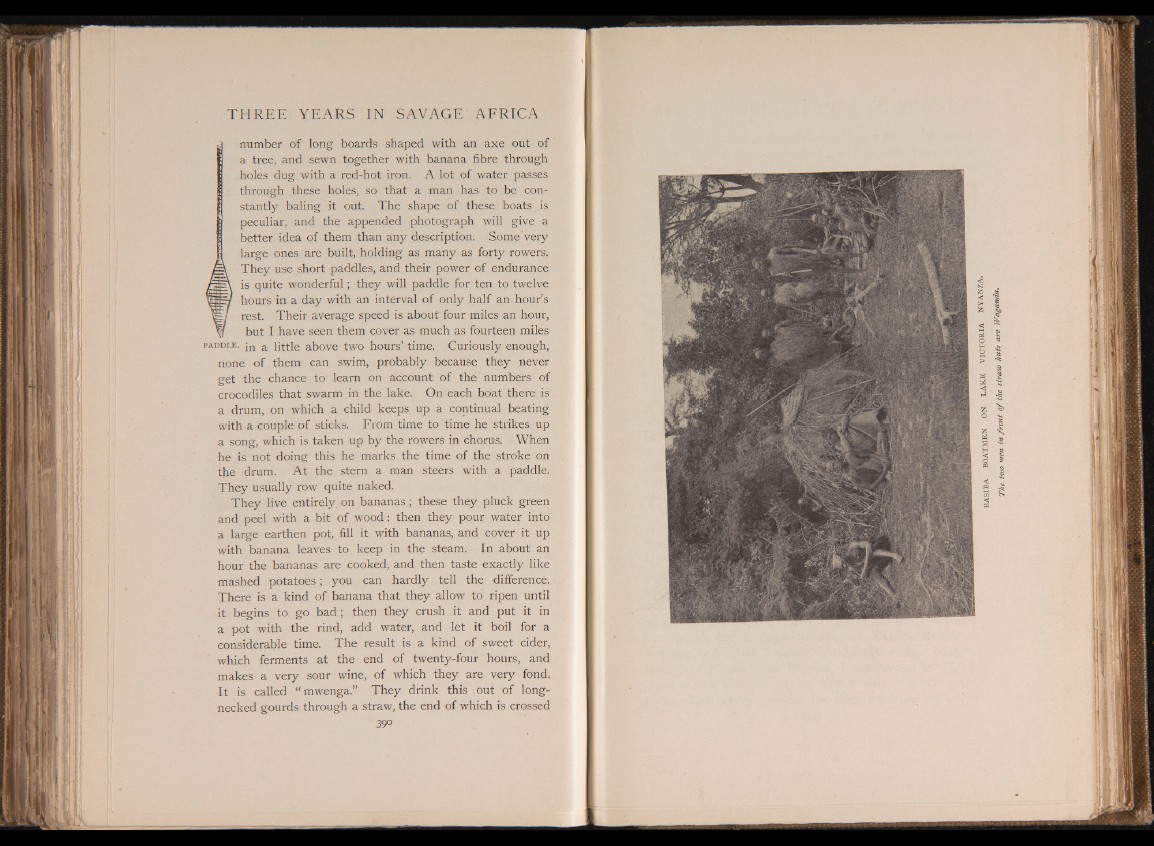
number of long boards shaped with an axe out of
a tree, and sewn together with banana fibre through
holes dug with a red-hot iron. A lot of water passes
through these holes, so that a man has to be constantly
baling it out. The shape of these boats is
peculiar, and the appended photograph will give a
better idea of them than any description. Some very
large ones are built, holding as many as forty rowers.
They use short paddles, and their power of endurance
is quite wonderful; they will paddle for ten to twelve
hours in a day with an interval of only half an hour’s
rest. Their average speed is about four miles an hour,
but I have seen them cover as much as fourteen miles
p a d d l e , j n a little above two hours’ time. Curiously enough,
none of them can swim, probably because they never
get the chance to learn on account of the numbers of
crocodiles that swarm in the lake. On each boat there is
a drum, on which a child keeps up a continual beating
with a couple of sticks. From time to time he strikes up
a song, which is taken up by the rowers in chorus. When
he is not doing this he marks the time of the stroke on
the drum. At the stern a man steers with a paddle.
They usually row quite naked.
They live entirely on bananas; these they pluck green
and peel with a bit of wood: then they pour water into
a large earthen pot, fill it with bananas, and cover it up
with banana leaves to keep in the steam. In about an
hour the bananas are cooked, and then taste exactly like
mashed potatoes; you can hardly tell the difference.
There is a kind of banana that they allow to ripen until
it begins to go bad; then they crush it and put it in
a pot with the rind, add water, and let it boil for a
considerable time. The result is a kind of sweet cider,
which ferments at the end of twenty-four hours, and
makes a very sour wine, of which they are very fond.
It is called “ mwenga.” They drink this .out of longnecked
gourds through a straw, the end of which is crossed
39o